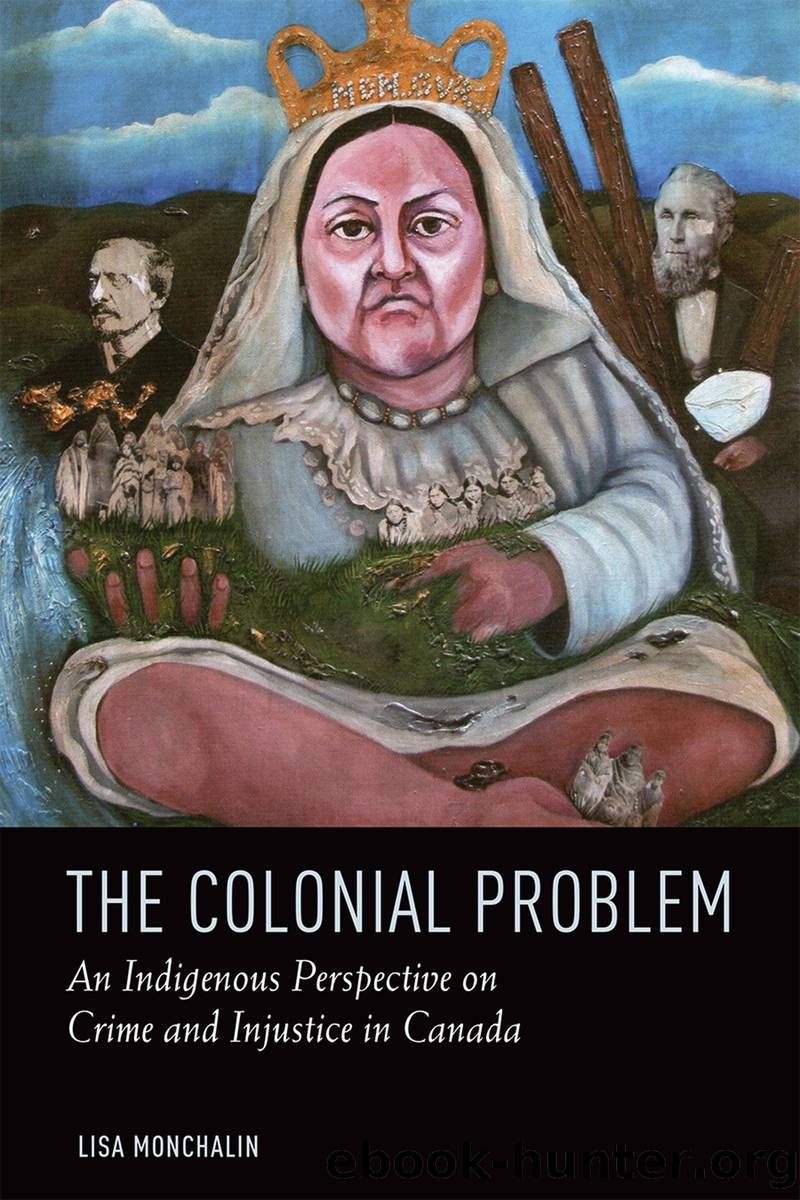The Colonial Problem by Monchalin Lisa

Author:Monchalin, Lisa
Language: eng
Format: epub
Publisher: University of Toronto Press
Justice Binnie identified a broader interpretation of the treaty through an elaborate analysis of its wording and of its historical and cultural contexts. Extrinsic historical sources, such as earlier treaties between the Miâkmaq and the British and the minutes of negotiating sessions between the British and the Maliseet (who had a comparable treaty with the British) were included in the analysis. Also included was expert evidence delivered at the trial. Based on this review, Justice Binnie concluded that the treaty was âpartly oral and partly written.â37 The Marshall and the Sioui cases, then, recognize that Indigenous interpretations of treaties and of treaty rights deserve a place at the table. And, because the Marshall case involved a healthy majority of five to two and the Sioui case was unanimous, the Supreme Court strongly supported the need for more than a one-sided, technical interpretation of treaties.38
Shortly after this first Marshall decision, referred to as R. v. Marshall (No 1) [1999] 3 S.C.R. 456, the Supreme Court handed down a ruling in Marshall II, referred to as R. v. Marshall (No 2) [1999] 3 S.C.R. 533âwhich put significant limits on the first ruling. Acting on a motion put forward by the West Nova Fishermenâs Coalition, the Supreme Court agreed to rehear the case, although the court did make explicit that this fishermanâs coalition had no right to bring such a motion forward. The rulings from R. v. Marshall (No 2) added a âclarificationâ to the first Marshall decision, outlining that the Crown could limit the exercise of a treaty right if doing so âcan be justified on conservation or other grounds.â39 So, although the Crown stipulated that it respected the Miâkmaq peoples âlimited commercial âright to fish,ââ it claimed the authority to limit that right with justifiable regulatory mechanisms: âThe federal and provincial governments have the authority within their respective legislative fields to regulate the exercise of a treaty right where justified on conservation or other grounds.â40
Download
This site does not store any files on its server. We only index and link to content provided by other sites. Please contact the content providers to delete copyright contents if any and email us, we'll remove relevant links or contents immediately.
| 19th Century | 20th Century |
| Exploration | First Nations |
| Founding | Pre-Confederation |
| Province & Local | War of 1812 |
Cat's cradle by Kurt Vonnegut(15342)
Pimp by Iceberg Slim(14492)
4 3 2 1: A Novel by Paul Auster(12382)
Underground: A Human History of the Worlds Beneath Our Feet by Will Hunt(12093)
The Radium Girls by Kate Moore(12021)
Wiseguy by Nicholas Pileggi(5775)
The Fire Next Time by James Baldwin(5433)
Perfect Rhythm by Jae(5400)
American History Stories, Volume III (Yesterday's Classics) by Pratt Mara L(5302)
Paper Towns by Green John(5183)
Pale Blue Dot by Carl Sagan(5002)
A Higher Loyalty: Truth, Lies, and Leadership by James Comey(4955)
The Mayflower and the Pilgrims' New World by Nathaniel Philbrick(4497)
The Doomsday Machine by Daniel Ellsberg(4486)
Killers of the Flower Moon: The Osage Murders and the Birth of the FBI by David Grann(4445)
The Sympathizer by Viet Thanh Nguyen(4386)
Too Much and Not the Mood by Durga Chew-Bose(4341)
The Borden Murders by Sarah Miller(4316)
Sticky Fingers by Joe Hagan(4191)
